
Nov 10, 2016 | Non categorizzato

LIVE STREAMING http://live.focolare.org/unesco 15 November 2016. Transmission times (CET, UTC+1): 10.00am – 1.00pm and 3.00 – 6.00pm OFFICIAL SPEECHES: “Reinventing peace” – Speech by Maria Voce “The unity of humankind and a culture of peace” – Speech by Jesús Morán Focolare Information Service: Press Release – October 26, 2016 Press Release – November 10, 2016 Program of the event: “Reinventing peace” – Programme “Reinventing peace” – Declaration Chiara Lubich, 17/12/1996 – Acceptance Speech by Chiara Lubich upon receiving UNESCO prize for Peace Education December 17, 1996 Video (Italian only)
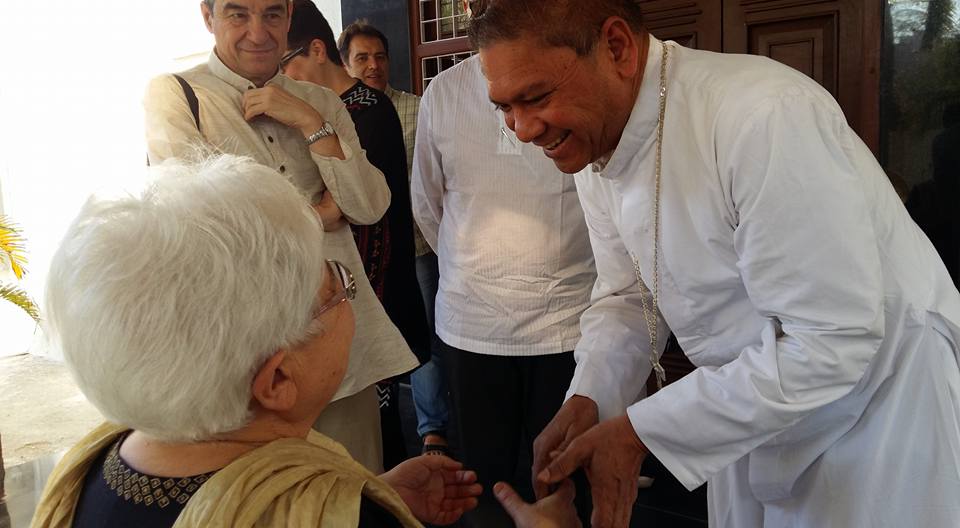
Nov 10, 2016 | Non categorizzato
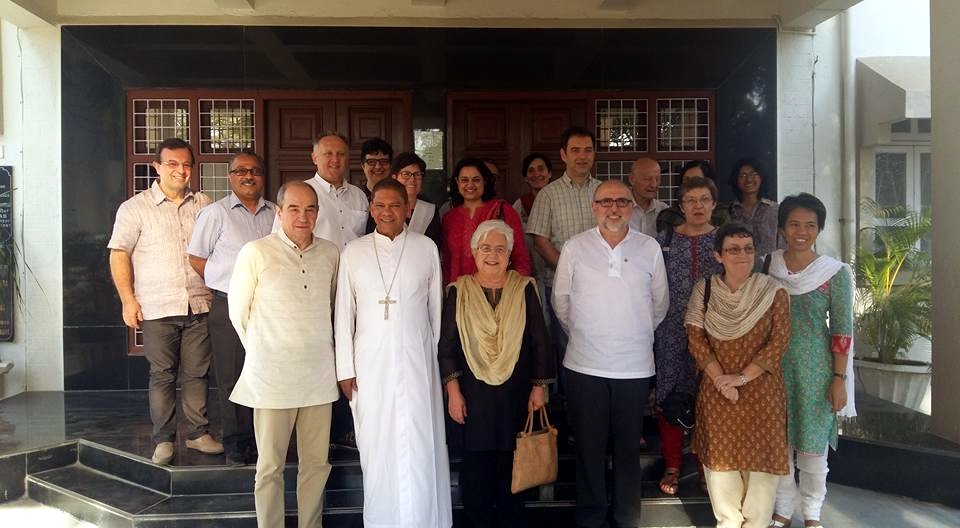 Bishop Felix Machado is a strong advocate of interreligious dialogue. This is proven by the friendship he has with numerous leaders of various religions, among which is that with the great Hindu scholar, Dr. Kala Acharya. These two speak of and refer to each other as “my brother Felix” and “my sister Kala,” in confirmation of the deep relationship which has led them to consider universal brotherhood as a point in common. How do you explain your propensity for dialogue? «I was raised in a rural and cosmopolitan culture. Vasai, in fact, the current seat of my ministry is also my birthplace. After studying theology in France and the United States, from 1999 to 2008 I served at the Pontifical Council for Interreligious Dialogue in the Vatican. There I acquired many elements on this matter and understood that the key lies in establishing real and authentic relationships with the people who differ from us. Thus, even if I am a leader and scholar or a simple farmer or fisherman, it is my duty as a Christian to see each one as a brother or sister in Christ. True dialogue may arise only from deep listening and acceptance of the other, and then, if necessary, one can offer one’s ideals as a gift. That’s why I appreciate the interreligious work undertaken by the Focolare Movement here in India. It is an action based on authenticity, trust and good will with our Hindu brothers and sisters.»
Bishop Felix Machado is a strong advocate of interreligious dialogue. This is proven by the friendship he has with numerous leaders of various religions, among which is that with the great Hindu scholar, Dr. Kala Acharya. These two speak of and refer to each other as “my brother Felix” and “my sister Kala,” in confirmation of the deep relationship which has led them to consider universal brotherhood as a point in common. How do you explain your propensity for dialogue? «I was raised in a rural and cosmopolitan culture. Vasai, in fact, the current seat of my ministry is also my birthplace. After studying theology in France and the United States, from 1999 to 2008 I served at the Pontifical Council for Interreligious Dialogue in the Vatican. There I acquired many elements on this matter and understood that the key lies in establishing real and authentic relationships with the people who differ from us. Thus, even if I am a leader and scholar or a simple farmer or fisherman, it is my duty as a Christian to see each one as a brother or sister in Christ. True dialogue may arise only from deep listening and acceptance of the other, and then, if necessary, one can offer one’s ideals as a gift. That’s why I appreciate the interreligious work undertaken by the Focolare Movement here in India. It is an action based on authenticity, trust and good will with our Hindu brothers and sisters.»  After her journey in India at the start of the year, Maria Voce, President of the Focolare, recounted that you had welcomed her very warmly. «It was my pleasure to welcome her to my diocese of Vasai, and to recall with her the first contacts I had with the Movement through the two focolarine who worked in the Pontifical Council for Interreligious Dialogue. I had been impressed by the great love they put in the most simple jobs they performed. It aroused my interest and I desired to know more about the Focolare, and soon I had the privilege to meet Chiara Lubich. She was simple and direct and believed in unity. She offered the path of unity to humanity, through the church. She remained deeply faithful to it and worked for unity of the human family. I was happy to see how in India the Focolare is bringing ahead this legacy through dialogue among religions, cultures and generations.» In the light of the many challenges the human family has to face in various parts of the world, how vital is it to pursue the path of dialogue? «It is a process that requires time and dedication, and at times dialogue may seem useless when we encounter episodes of violence, poverty and social discrimination. But it is not so. Personally I try to draw inspiration from Pope John XXIII, who used to kneel in prayer after a long and difficult day saying: “Lord, I’ve done my best. This is Your Church, now it is you in command.” As human beings it is our duty to be similar to Christ in loving, forgiving and continuing to believe in universal brotherhood also, and above all when all seems inadequate to resolve the current problems. We must remember that we cannot impose our idea of time on God.» Interview by Annabel D’Souza
After her journey in India at the start of the year, Maria Voce, President of the Focolare, recounted that you had welcomed her very warmly. «It was my pleasure to welcome her to my diocese of Vasai, and to recall with her the first contacts I had with the Movement through the two focolarine who worked in the Pontifical Council for Interreligious Dialogue. I had been impressed by the great love they put in the most simple jobs they performed. It aroused my interest and I desired to know more about the Focolare, and soon I had the privilege to meet Chiara Lubich. She was simple and direct and believed in unity. She offered the path of unity to humanity, through the church. She remained deeply faithful to it and worked for unity of the human family. I was happy to see how in India the Focolare is bringing ahead this legacy through dialogue among religions, cultures and generations.» In the light of the many challenges the human family has to face in various parts of the world, how vital is it to pursue the path of dialogue? «It is a process that requires time and dedication, and at times dialogue may seem useless when we encounter episodes of violence, poverty and social discrimination. But it is not so. Personally I try to draw inspiration from Pope John XXIII, who used to kneel in prayer after a long and difficult day saying: “Lord, I’ve done my best. This is Your Church, now it is you in command.” As human beings it is our duty to be similar to Christ in loving, forgiving and continuing to believe in universal brotherhood also, and above all when all seems inadequate to resolve the current problems. We must remember that we cannot impose our idea of time on God.» Interview by Annabel D’Souza

Nov 8, 2016 | Non categorizzato
 While undertaking their work regarding the migration phenomenon, and with active participation in the opinion debate in confrontation with ideological battles, a group of journalists and communication experts of various European regions (Italy, Hungary, Germany, Slovenia and Austria) are trying to open an original path towards narratives and interpretation and for journalists and also other professionals. Similar symposiums which gather media professionals have been held up to now in some troubled areas such as Budapest (Hungary), Athens (Greece), Man (Ivory Coast), and Warsaw (Poland). These meetings are promoted by NetOne (an international chain of professionals which works at the service of dialogue and peace among peoples). The aim is to establish a network of collaborators comprising of journalists and other media and communciation experts, NGO representatives, academics and social workers, to better understand the phenomenon in order to interpret it and to provide adequate narrative and communication tools. As of today, the experience has led to the growth of a mutual interest and way of listening (among journalists, between journalists and experts, and between journalist and migrants); the style used helps to understand the historical, cultural and political backgrounds underlying migrations. The professional symposiums were lately held in the migratory hot spots: Budapest (Hungary), Athens (Greece), Man (Ivory Coast), and Warsaw (Poland). The next on the agenda will be in Beirut (Lebanon) from 24 -27 November, Brussels (Belgium) from 26-28 January 2017, and in Chiaramonte Gulfi and Pozzallo (Italy) from 4-5 November 2016. The forthcoming session will be in Beirut-Ain Aar (Lebanon) from 24 – 27 November.
While undertaking their work regarding the migration phenomenon, and with active participation in the opinion debate in confrontation with ideological battles, a group of journalists and communication experts of various European regions (Italy, Hungary, Germany, Slovenia and Austria) are trying to open an original path towards narratives and interpretation and for journalists and also other professionals. Similar symposiums which gather media professionals have been held up to now in some troubled areas such as Budapest (Hungary), Athens (Greece), Man (Ivory Coast), and Warsaw (Poland). These meetings are promoted by NetOne (an international chain of professionals which works at the service of dialogue and peace among peoples). The aim is to establish a network of collaborators comprising of journalists and other media and communciation experts, NGO representatives, academics and social workers, to better understand the phenomenon in order to interpret it and to provide adequate narrative and communication tools. As of today, the experience has led to the growth of a mutual interest and way of listening (among journalists, between journalists and experts, and between journalist and migrants); the style used helps to understand the historical, cultural and political backgrounds underlying migrations. The professional symposiums were lately held in the migratory hot spots: Budapest (Hungary), Athens (Greece), Man (Ivory Coast), and Warsaw (Poland). The next on the agenda will be in Beirut (Lebanon) from 24 -27 November, Brussels (Belgium) from 26-28 January 2017, and in Chiaramonte Gulfi and Pozzallo (Italy) from 4-5 November 2016. The forthcoming session will be in Beirut-Ain Aar (Lebanon) from 24 – 27 November.
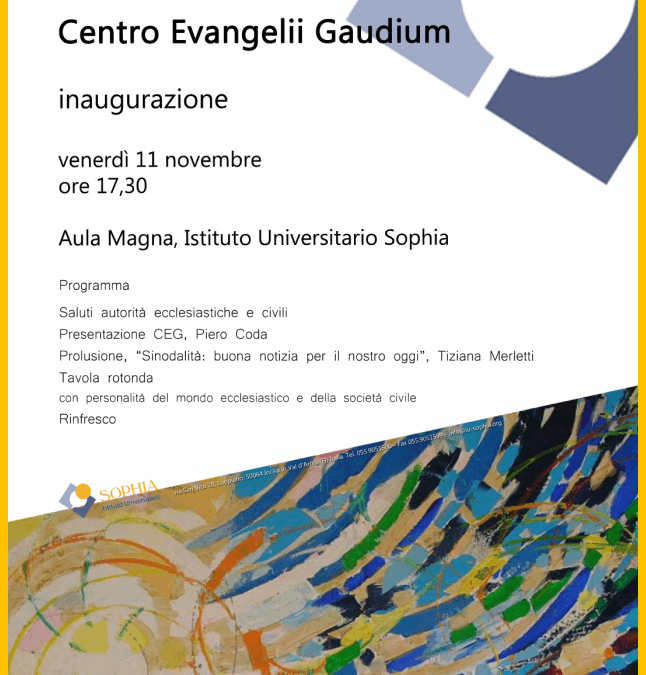
Nov 7, 2016 | Non categorizzato
 A new “laboratory” promoted by SUI in collaboration with the Focolare Movement Centres of Formation and Pastoral Action: Focolarini Presbyters & Deacons Centre, Volunteer Priests & Deacons Centre, the Gens Centre, Centre for Religious, Centre for Consecrated Persons, the Segretariat of the Parish Movement and the Secretariat of the Diocesan Movement. The Centre is intended to respond to Pope Francis’s invitation to the Church in Italy to take up his Joy of the Gospel Apostolic Exhortation to give content and direction to the work of pastoral renewal that is necessary for the evangelization that the Church is called to in order to “go out” to the existential peripheries of our time. The courses, seminars, workshops and stages that will be activated by the Centre will be directed towards priests, consecrated people, pastoral workers, lay people in ecclesial and social environments and, above, the young. They hope to contribute to this demanding and urgent task, engaging the spiritual impulses and experiences that have emerged from the charism of unity of Chiara Lubich. The mission of the Joy of the Gospel Centre (JGC) is to promote and support formation, research and study in the fields of Ecclesiology, Pastoral Theology and the Mission, Spiritual Theology and Theology of the Charisms and life of the Church today as it goes out on mission. The innauguration will begin with a from Cardinal Joao Braz de Aviz and Archbishop Vincenzo Zani. It will include a presentation of the Centre by the president of IUS, Piero Coda, and a keynote address on the main points of Pope Francis’s Apostolic Exhortation by Dr Tiziana Merletti, Superior General of the Franciscan Sisters of the Poor. Then there will be a roundtable with people from the world of culture, like Massimo Toschi and Damiano Tommasi. “The challenge is to manage to contribute something to that paradigm change in the culture and the relationships among ecclesial and civil communities,” said Piero Coda, “which out times ask for and which the prophecy of Pope Francis forcefully tells us that the moment has come to give a hand in fedelity and with creativity.” Press Conference presenting the Joy of the Gospel Centre of Higher Formation” (CEG): November 8, 2016; 11:30 at Toscana Oggi – Via dei Pucci 2, Florence. Moderator: Father Giovanni Momigli, CEG collaborator. Presentors include: Father Emilio Rocchi, Secretary of the Joy of Gospel Centre, Dr Sergio Rondinara (Epistomology and Cosmology Instructor at IUS) ****************************************************** Info: relazioni.esterne@iu-sophia.org – www.iu-sophia.org Sophia University Institute – Via San Vito 28, Loppiano – 50063 Figline e Incisa Valdarno (FI) ITA Tel. +39 055 9051500 – Fax +39 055 9051599
A new “laboratory” promoted by SUI in collaboration with the Focolare Movement Centres of Formation and Pastoral Action: Focolarini Presbyters & Deacons Centre, Volunteer Priests & Deacons Centre, the Gens Centre, Centre for Religious, Centre for Consecrated Persons, the Segretariat of the Parish Movement and the Secretariat of the Diocesan Movement. The Centre is intended to respond to Pope Francis’s invitation to the Church in Italy to take up his Joy of the Gospel Apostolic Exhortation to give content and direction to the work of pastoral renewal that is necessary for the evangelization that the Church is called to in order to “go out” to the existential peripheries of our time. The courses, seminars, workshops and stages that will be activated by the Centre will be directed towards priests, consecrated people, pastoral workers, lay people in ecclesial and social environments and, above, the young. They hope to contribute to this demanding and urgent task, engaging the spiritual impulses and experiences that have emerged from the charism of unity of Chiara Lubich. The mission of the Joy of the Gospel Centre (JGC) is to promote and support formation, research and study in the fields of Ecclesiology, Pastoral Theology and the Mission, Spiritual Theology and Theology of the Charisms and life of the Church today as it goes out on mission. The innauguration will begin with a from Cardinal Joao Braz de Aviz and Archbishop Vincenzo Zani. It will include a presentation of the Centre by the president of IUS, Piero Coda, and a keynote address on the main points of Pope Francis’s Apostolic Exhortation by Dr Tiziana Merletti, Superior General of the Franciscan Sisters of the Poor. Then there will be a roundtable with people from the world of culture, like Massimo Toschi and Damiano Tommasi. “The challenge is to manage to contribute something to that paradigm change in the culture and the relationships among ecclesial and civil communities,” said Piero Coda, “which out times ask for and which the prophecy of Pope Francis forcefully tells us that the moment has come to give a hand in fedelity and with creativity.” Press Conference presenting the Joy of the Gospel Centre of Higher Formation” (CEG): November 8, 2016; 11:30 at Toscana Oggi – Via dei Pucci 2, Florence. Moderator: Father Giovanni Momigli, CEG collaborator. Presentors include: Father Emilio Rocchi, Secretary of the Joy of Gospel Centre, Dr Sergio Rondinara (Epistomology and Cosmology Instructor at IUS) ****************************************************** Info: relazioni.esterne@iu-sophia.org – www.iu-sophia.org Sophia University Institute – Via San Vito 28, Loppiano – 50063 Figline e Incisa Valdarno (FI) ITA Tel. +39 055 9051500 – Fax +39 055 9051599
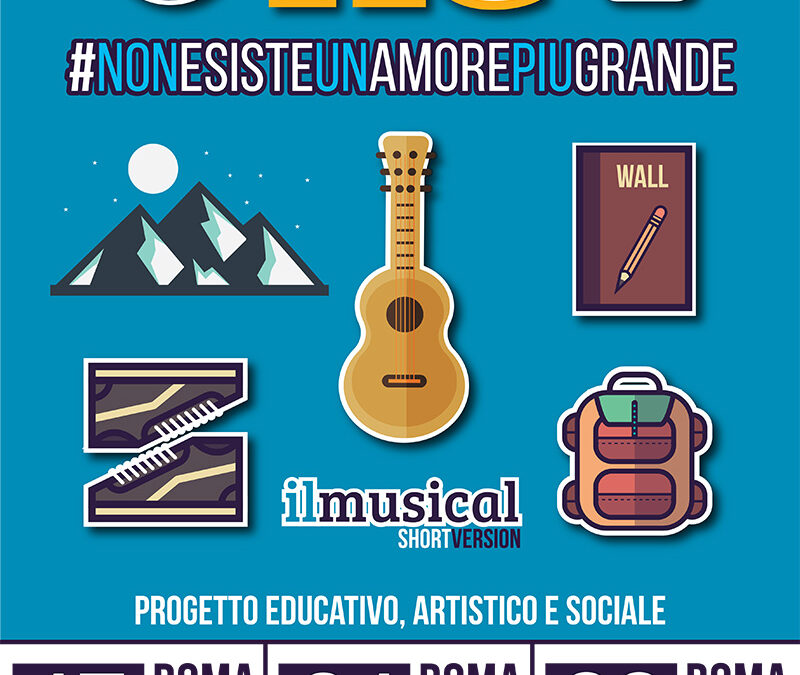
Nov 7, 2016 | Non categorizzato
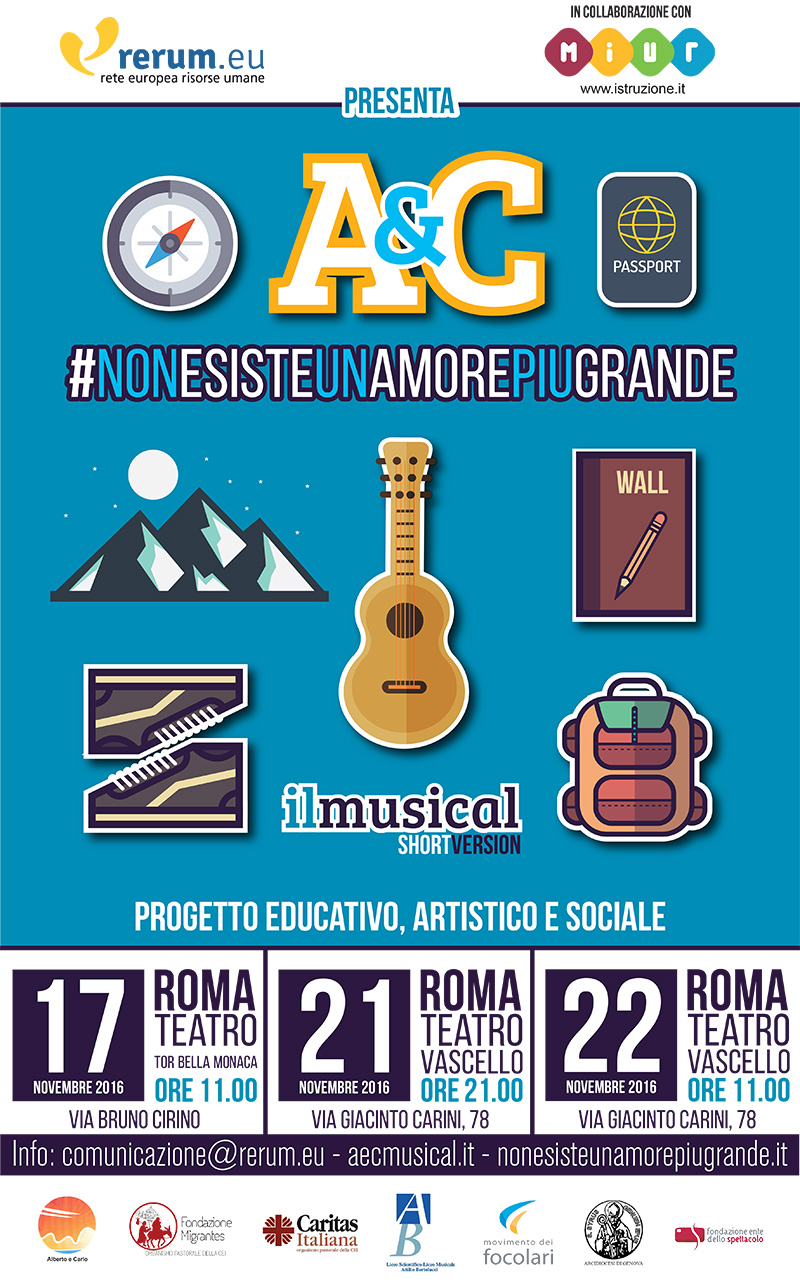 Finally, the staging of the musical production dedicated to the story of Alberto Michelotti, Carlo Grisolia (A&C) and their group of friends with their passions in life (sports, music, friendships), who would meet at the “Wall,” a small square at the outskirts of Genoa at the turn of the 1970s. It is the story of teenagers who committed themselves, against a backdrop of difficulties and sharing, the harbour, the place of confines, transitions, and encounters, especially among the youths, since those disembarking are mostly young people: kids who knew how to pay attention to the others, spending their time for this cause, and facilitating the encounter between the new and the diverse (which youths, unlike adults, do not fear). Friendship is the “philadelphia” which makes us discover the others deeply, perfectly, and as ontologically equal to us, and which substantiates and makes kinship, solidarity, peace, dialogue and openness a concrete reality. It is the decision to give one’s life for one’s friends that makes us really solid, open, respectful, and proactive. This is the “greatest love of all.” The show, in a first “short version,” will make its debut in November 2016 in two theatres in Rome, on the 17th at “Tor Bella Monaca,” and on 21 and 22 November at the “Vascello” theatre. In connection to this is an interesting and extensive educational and social project that will subsequently be proposed, in collaboration with M.I.U.R. Department for the Educational System and the General Management for the Student, Integration and Participation, the Secondary Institutes, thanks also to the support of the Migrantes Foundation, Italian Caritas, Alberto & Carlo Committee, Focolare Movement, Foundation of the Show Agency, the Bertolucci Parma High School and the Diocese of Genoa. A team of professionals (authors/composers, directors, scenic artists, musical directors, choreographers, light and sound technicians) are the real “coaches” of a young cast of artists coming from various Regions of Italian Secondary and University Institutes. Particularly important is the presence of a young Nigerian boy applying for political asylum, Above all these have been the first to be invited to relive and experience the values conveyed in the story of Alberto & Carlo. Source: rerum.eu
Finally, the staging of the musical production dedicated to the story of Alberto Michelotti, Carlo Grisolia (A&C) and their group of friends with their passions in life (sports, music, friendships), who would meet at the “Wall,” a small square at the outskirts of Genoa at the turn of the 1970s. It is the story of teenagers who committed themselves, against a backdrop of difficulties and sharing, the harbour, the place of confines, transitions, and encounters, especially among the youths, since those disembarking are mostly young people: kids who knew how to pay attention to the others, spending their time for this cause, and facilitating the encounter between the new and the diverse (which youths, unlike adults, do not fear). Friendship is the “philadelphia” which makes us discover the others deeply, perfectly, and as ontologically equal to us, and which substantiates and makes kinship, solidarity, peace, dialogue and openness a concrete reality. It is the decision to give one’s life for one’s friends that makes us really solid, open, respectful, and proactive. This is the “greatest love of all.” The show, in a first “short version,” will make its debut in November 2016 in two theatres in Rome, on the 17th at “Tor Bella Monaca,” and on 21 and 22 November at the “Vascello” theatre. In connection to this is an interesting and extensive educational and social project that will subsequently be proposed, in collaboration with M.I.U.R. Department for the Educational System and the General Management for the Student, Integration and Participation, the Secondary Institutes, thanks also to the support of the Migrantes Foundation, Italian Caritas, Alberto & Carlo Committee, Focolare Movement, Foundation of the Show Agency, the Bertolucci Parma High School and the Diocese of Genoa. A team of professionals (authors/composers, directors, scenic artists, musical directors, choreographers, light and sound technicians) are the real “coaches” of a young cast of artists coming from various Regions of Italian Secondary and University Institutes. Particularly important is the presence of a young Nigerian boy applying for political asylum, Above all these have been the first to be invited to relive and experience the values conveyed in the story of Alberto & Carlo. Source: rerum.eu
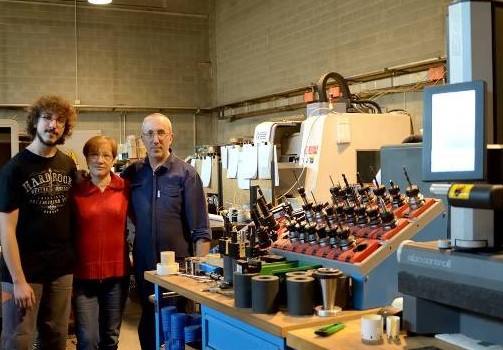
Nov 7, 2016 | Non categorizzato
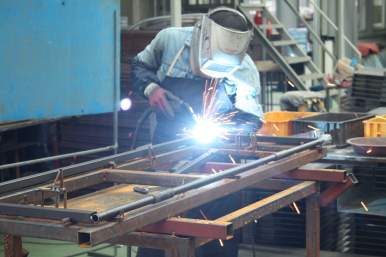 Some years ago, my husband and I took over a small mechanics company with six employees and many clients. It was a small dream come true also for the fact that we could in this way, ensure a business future for our children. Though the clients assured us that nothing would change, we came up against the harsh reality of a self-run business already in the first six months of work: discontinuity, bureaucracy and also some subtle attempts at corruption. It was important for us to do things legally and ignore these requests, but due to this attitude and the crisis of the automobile sector, in the span of a year we saw that the company’s turnover had been reduced to half. We thus found ourselves with lots of debts and without any resources, and as a consequence had to face the most difficult choice of firing most of the workers, giving them the time to find new jobs. We were also forced to sell the machinery to be able to give them their benefits. We took it all as a failure but didn’t give up. Around us the Focolare community of which we have been a part for some years, supported us with prayers and we entrusted ourselves to God to guide us in our decisions. Divine Providence did not tarry, and the occasion came up to change our business sector, which would give more warranties for continuity: my father gave us a sum with which to face the most urgent things; one of our sales agents leased a machine to us without charge; and the suppliers allowed us to make deferred payments. So we slowly recovered.
Some years ago, my husband and I took over a small mechanics company with six employees and many clients. It was a small dream come true also for the fact that we could in this way, ensure a business future for our children. Though the clients assured us that nothing would change, we came up against the harsh reality of a self-run business already in the first six months of work: discontinuity, bureaucracy and also some subtle attempts at corruption. It was important for us to do things legally and ignore these requests, but due to this attitude and the crisis of the automobile sector, in the span of a year we saw that the company’s turnover had been reduced to half. We thus found ourselves with lots of debts and without any resources, and as a consequence had to face the most difficult choice of firing most of the workers, giving them the time to find new jobs. We were also forced to sell the machinery to be able to give them their benefits. We took it all as a failure but didn’t give up. Around us the Focolare community of which we have been a part for some years, supported us with prayers and we entrusted ourselves to God to guide us in our decisions. Divine Providence did not tarry, and the occasion came up to change our business sector, which would give more warranties for continuity: my father gave us a sum with which to face the most urgent things; one of our sales agents leased a machine to us without charge; and the suppliers allowed us to make deferred payments. So we slowly recovered. 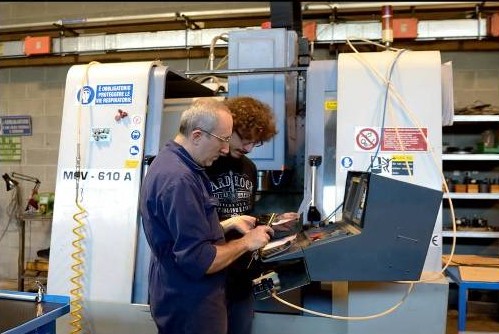 The most important result of that period was that our children had grown up with the concept of giving more value to the important things of a sober lifestyle, and experienced God’s love through many small but important signs. And this strengthened our family bonds. The year 2009 marked the start of the global economic crisis, and so we too felt the effects. At times we were overcome with discouragement but went ahead despite the immense difficulties that gave no certainty to the future. However, we confided in Providence which amazed us on many occasions, for example, that time when we were so worried because we hadn’t received even one order! I asked the volunteers of my group, with whom I share the Focolare spirituality to pray, and towards noon the fax machine started printing out 72 pages of orders! We really touched the power of prayer with our hands, and the concrete love of God for us.
The most important result of that period was that our children had grown up with the concept of giving more value to the important things of a sober lifestyle, and experienced God’s love through many small but important signs. And this strengthened our family bonds. The year 2009 marked the start of the global economic crisis, and so we too felt the effects. At times we were overcome with discouragement but went ahead despite the immense difficulties that gave no certainty to the future. However, we confided in Providence which amazed us on many occasions, for example, that time when we were so worried because we hadn’t received even one order! I asked the volunteers of my group, with whom I share the Focolare spirituality to pray, and towards noon the fax machine started printing out 72 pages of orders! We really touched the power of prayer with our hands, and the concrete love of God for us.  This summer, one of our clients who used to commission some occasional jobs, assigned an important job to us, that lasted a few months but which gave future prospects of huge orders and, therefore, the economic serenity we had always dreamed of. Towards the end of this job we discovered that the pieces produced would be used in the heavy artillery industry. We recalled the images of desperation of the many refugees escaping from wars in their countries. The decision to stop working for this company was a difficult one, since we could have ensured work for many months. But we had no doubts whatsoever. What made us happier is the fact that our son who had started working with us, fully agreed with our decision, and we are certain that God’s providence which we have experienced so many times over the past years, will not fail us.
This summer, one of our clients who used to commission some occasional jobs, assigned an important job to us, that lasted a few months but which gave future prospects of huge orders and, therefore, the economic serenity we had always dreamed of. Towards the end of this job we discovered that the pieces produced would be used in the heavy artillery industry. We recalled the images of desperation of the many refugees escaping from wars in their countries. The decision to stop working for this company was a difficult one, since we could have ensured work for many months. But we had no doubts whatsoever. What made us happier is the fact that our son who had started working with us, fully agreed with our decision, and we are certain that God’s providence which we have experienced so many times over the past years, will not fail us.



 Bishop Felix Machado is a strong advocate of interreligious dialogue. This is proven by the friendship he has with numerous leaders of various religions, among which is that with the great Hindu scholar, Dr. Kala Acharya. These two speak of and refer to each other as “my brother Felix” and “my sister Kala,” in confirmation of the deep relationship which has led them to consider universal brotherhood as a point in common. How do you explain your propensity for dialogue? «I was raised in a rural and cosmopolitan culture. Vasai, in fact, the current seat of my ministry is also my birthplace. After studying theology in France and the United States, from 1999 to 2008 I served at the Pontifical Council for Interreligious Dialogue in the Vatican. There I acquired many elements on this matter and understood that the key lies in establishing real and authentic relationships with the people who differ from us. Thus, even if I am a leader and scholar or a simple farmer or fisherman, it is my duty as a Christian to see each one as a brother or sister in Christ. True dialogue may arise only from deep listening and acceptance of the other, and then, if necessary, one can offer one’s ideals as a gift. That’s why I appreciate the interreligious work undertaken by the Focolare Movement here in India. It is an action based on authenticity, trust and good will with our Hindu brothers and sisters.»
Bishop Felix Machado is a strong advocate of interreligious dialogue. This is proven by the friendship he has with numerous leaders of various religions, among which is that with the great Hindu scholar, Dr. Kala Acharya. These two speak of and refer to each other as “my brother Felix” and “my sister Kala,” in confirmation of the deep relationship which has led them to consider universal brotherhood as a point in common. How do you explain your propensity for dialogue? «I was raised in a rural and cosmopolitan culture. Vasai, in fact, the current seat of my ministry is also my birthplace. After studying theology in France and the United States, from 1999 to 2008 I served at the Pontifical Council for Interreligious Dialogue in the Vatican. There I acquired many elements on this matter and understood that the key lies in establishing real and authentic relationships with the people who differ from us. Thus, even if I am a leader and scholar or a simple farmer or fisherman, it is my duty as a Christian to see each one as a brother or sister in Christ. True dialogue may arise only from deep listening and acceptance of the other, and then, if necessary, one can offer one’s ideals as a gift. That’s why I appreciate the interreligious work undertaken by the Focolare Movement here in India. It is an action based on authenticity, trust and good will with our Hindu brothers and sisters.» 





 Some years ago, my husband and I took over a small mechanics company with six employees and many clients. It was a small dream come true also for the fact that we could in this way, ensure a business future for our children. Though the clients assured us that nothing would change, we came up against the harsh reality of a self-run business already in the first six months of work: discontinuity, bureaucracy and also some subtle attempts at corruption. It was important for us to do things legally and ignore these requests, but due to this attitude and the crisis of the automobile sector, in the span of a year we saw that the company’s turnover had been reduced to half. We thus found ourselves with lots of debts and without any resources, and as a consequence had to face the most difficult choice of firing most of the workers, giving them the time to find new jobs. We were also forced to sell the machinery to be able to give them their benefits. We took it all as a failure but didn’t give up. Around us the
Some years ago, my husband and I took over a small mechanics company with six employees and many clients. It was a small dream come true also for the fact that we could in this way, ensure a business future for our children. Though the clients assured us that nothing would change, we came up against the harsh reality of a self-run business already in the first six months of work: discontinuity, bureaucracy and also some subtle attempts at corruption. It was important for us to do things legally and ignore these requests, but due to this attitude and the crisis of the automobile sector, in the span of a year we saw that the company’s turnover had been reduced to half. We thus found ourselves with lots of debts and without any resources, and as a consequence had to face the most difficult choice of firing most of the workers, giving them the time to find new jobs. We were also forced to sell the machinery to be able to give them their benefits. We took it all as a failure but didn’t give up. Around us the  The most important result of that period was that our children had grown up with the concept of giving more value to the important things of a sober lifestyle, and experienced God’s love through many small but important signs. And this strengthened our family bonds. The year 2009 marked the start of the global economic crisis, and so we too felt the effects. At times we were overcome with discouragement but went ahead despite the immense difficulties that gave no certainty to the future. However, we confided in Providence which amazed us on many occasions, for example, that time when we were so worried because we hadn’t received even one order! I asked the
The most important result of that period was that our children had grown up with the concept of giving more value to the important things of a sober lifestyle, and experienced God’s love through many small but important signs. And this strengthened our family bonds. The year 2009 marked the start of the global economic crisis, and so we too felt the effects. At times we were overcome with discouragement but went ahead despite the immense difficulties that gave no certainty to the future. However, we confided in Providence which amazed us on many occasions, for example, that time when we were so worried because we hadn’t received even one order! I asked the